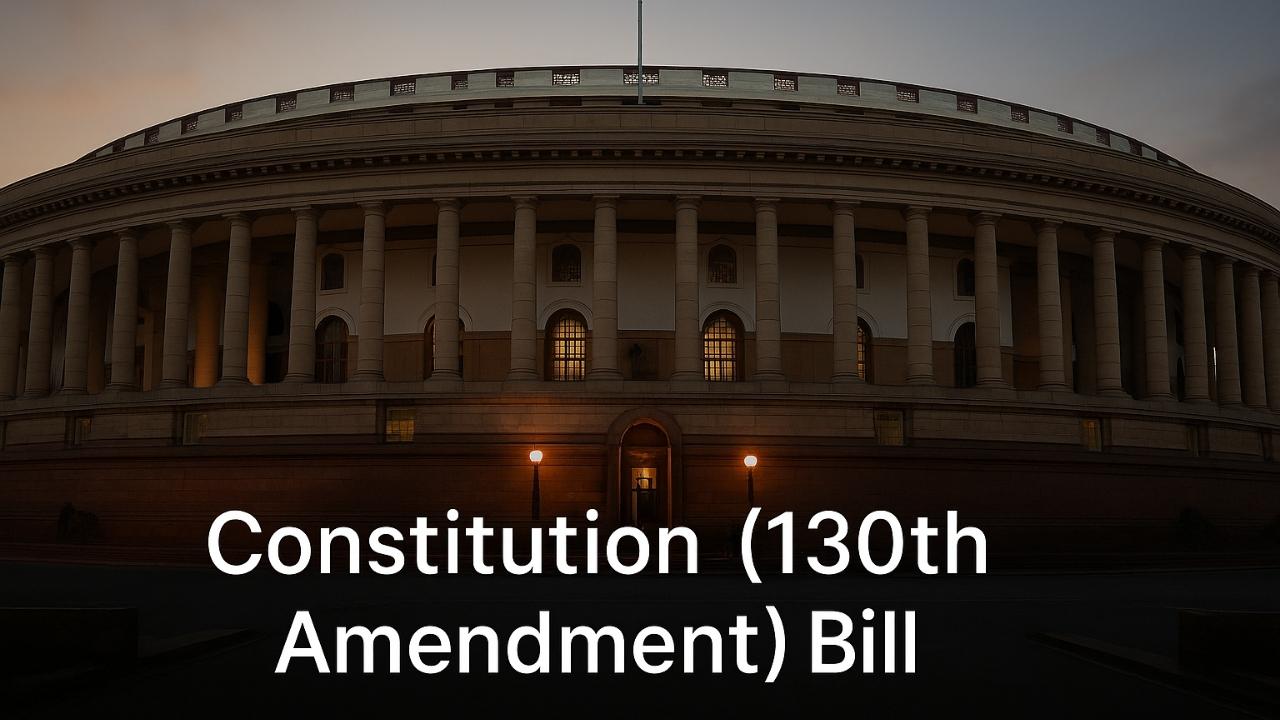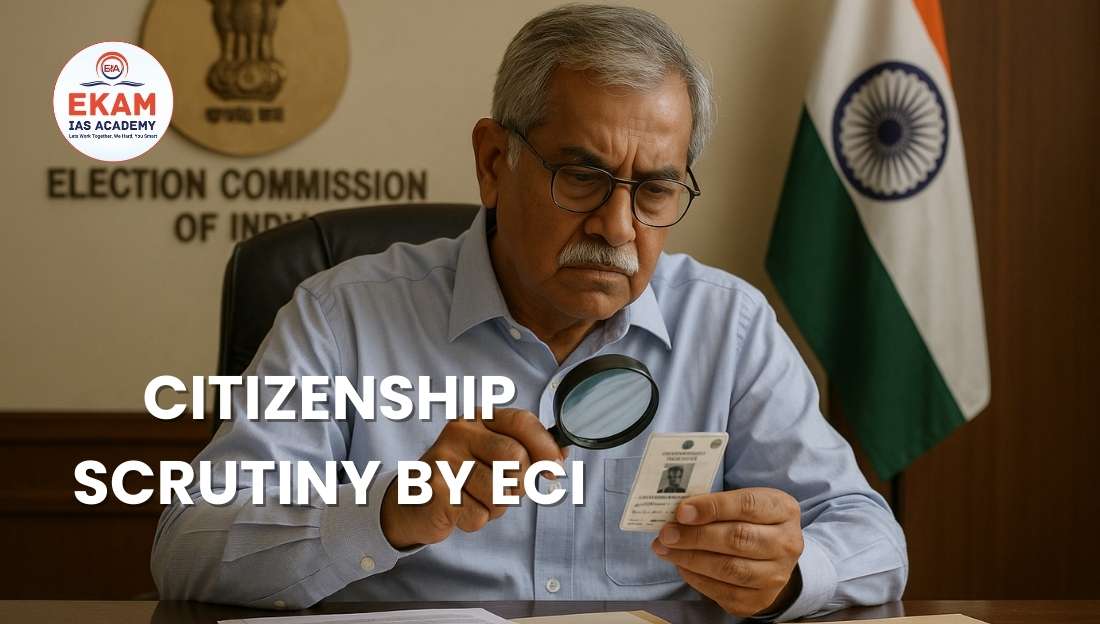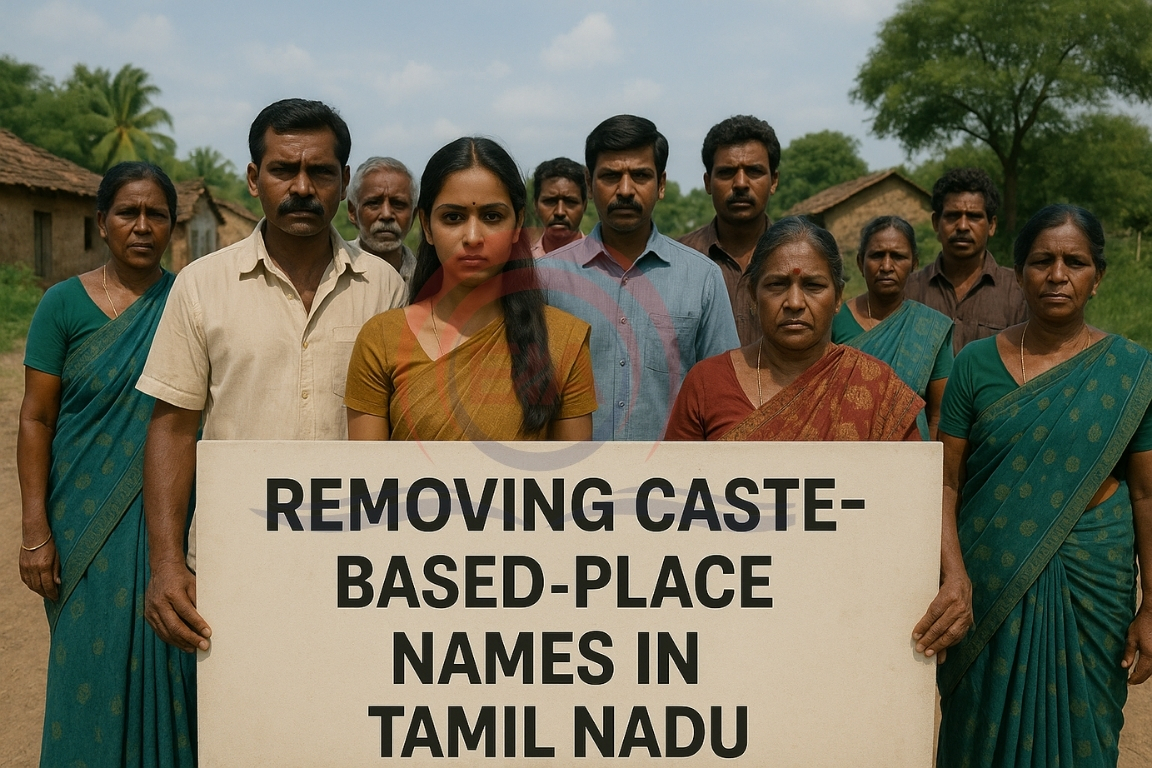The Union Government introduced the Constitution (130th Amendment) Bill to change provisions related to removal of Ministers if arrested and detained for 30 days. The bill has been referred to a Joint Parliamentary Committee, following strong objections from the Opposition.
Context
- The Bill proposes amendments to Articles 75, 164 and 239AA dealing with the Union/State Ministers and Delhi Government.
- Aim: Prevent continuation of Ministers facing serious criminal cases in public office.
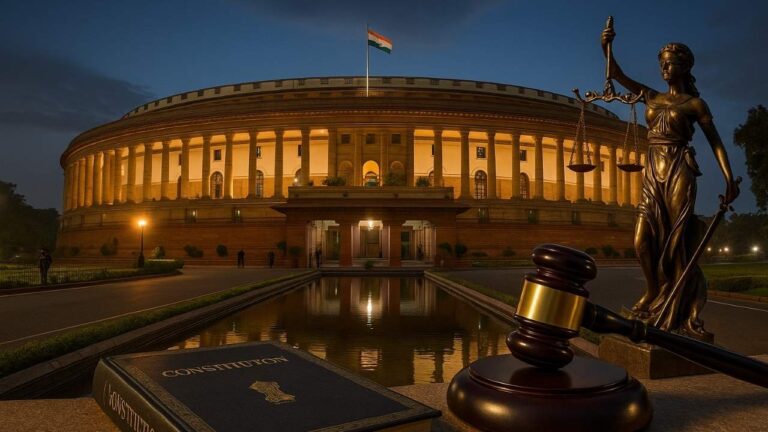
Removal after 30 days of custody
- If a Union/State Minister or Delhi Minister is arrested and in custody for 30 continuous days, they must be removed.
- For PM/CM: Must resign by 31st day or automatically cease to hold office.
- Applicable where offence carries max punishment of 5 years or more.
Arrest-based trigger
- Arrest power lies with police — may be used politically.
- Arrest is discretionary, not mandatory, even in serious offences (as upheld by courts).
- Fears of political misuse to unseat Opposition Ministers by engineered arrests.
Court-ordered detention
- Courts allowing custody can delay bail beyond 30 days.
- Bail may be denied for reasons other than flight-risk or evidence tampering.
Judicial References Mentioned
- Courts have held that arrest must be justified and is not automatic.
- SC cases emphasise bail as the norm, yet practice often differs.
Issues & Concerns
- Risk of Political Misuse: Police may act under political influence → arrest may become a tool to remove Ministers.
- Bail Challenges: Bail harder in special laws (PMLA, UAPA, NDPS) with reverse burden of proof. Example: Long pre-trial detention in high-profile cases (e.g., liquor policy case).
- Conflict with Default Bail Rules: Default bail possible only after 60–90 days, but Bill sets 30-day rule → irrational threshold.
- Dilemma for Ministers: Remaining in office may harm bail chances. Resigning to secure bail loss of ministerial functioning, hurting governance.
Judicial Subjectivity
- Bail decisions differ based on judicial approach to liberty → unpredictable outcomes.
Significance
- Intention: Cleaner politics, constitutional ethics, and prevent misuse of office.
- Challenge: Must balance anti-corruption goals with protection against political vendetta.
CONSTITUTION AMENDMENT BILL
How a Constitution Amendment Bill is introduced
- It can be introduced in either Lok Sabha or Rajya Sabha.
- It cannot be introduced in State Legislatures.
- Only a Minister or Member of Parliament can introduce it.
- The bill does not require prior approval of the President.
Voting process in Parliament
- The bill must be passed in each House separately.
- In both Houses, it requires a special majority:
- More than half of the total membership of the House
- and Two-thirds of members present and voting
- The two Houses vote independently, meaning joint sitting is not allowed if they disagree.
- For changes affecting federal provisions (like powers of Centre-State, judiciary, elections), at least half of State Legislatures must approve it.
How it becomes a Constitutional Amendment
- After both Houses pass it, and where required, States also approve it
- The bill is sent to the President of India
- The President must give assent, cannot return it
- After the President’s assent, it becomes a Constitution (Amendment) Act
Conclusion:
The Bill aims to promote integrity in governance but raises serious concerns regarding potential authoritarian misuse, arrest powers, and unrealistic bail timelines. Strong safeguards, judicial oversight, and clearer safeguards against political bias are essential before implementation.
This topic is available in detail on our main website.
The Union Government introduced the Constitution (130th Amendment) Bill to change provisions related to removal of Ministers if arrested and detained for 30 days. The bill has been referred to a Joint Parliamentary Committee, following strong objections from the Opposition.
Context
- The Bill proposes amendments to Articles 75, 164 and 239AA dealing with the Union/State Ministers and Delhi Government.
- Aim: Prevent continuation of Ministers facing serious criminal cases in public office.
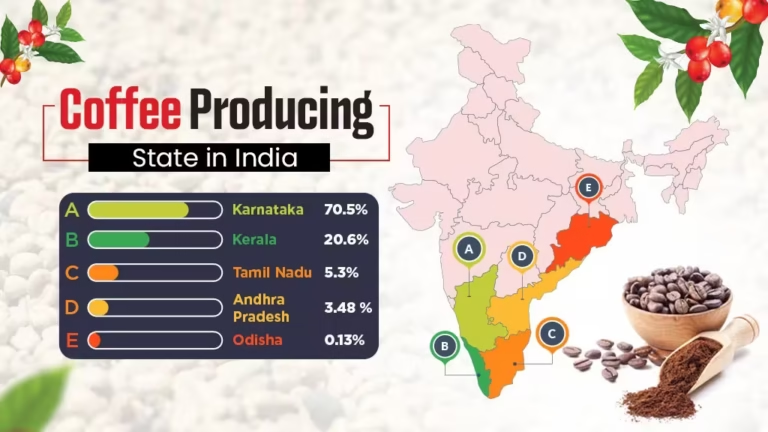
Removal after 30 days of custody
- If a Union/State Minister or Delhi Minister is arrested and in custody for 30 continuous days, they must be removed.
- For PM/CM: Must resign by 31st day or automatically cease to hold office.
- Applicable where offence carries max punishment of 5 years or more.
Arrest-based trigger
- Arrest power lies with police — may be used politically.
- Arrest is discretionary, not mandatory, even in serious offences (as upheld by courts).
- Fears of political misuse to unseat Opposition Ministers by engineered arrests.
Court-ordered detention
- Courts allowing custody can delay bail beyond 30 days.
- Bail may be denied for reasons other than flight-risk or evidence tampering.
Judicial References Mentioned
- Courts have held that arrest must be justified and is not automatic.
- SC cases emphasise bail as the norm, yet practice often differs.
Conclusion:
Indian coffee’s growing global reputation presents an opportunity to boost exports, farmer income, and rural employment, while reinforcing India’s image as a producer of high-quality, sustainable coffee.
This topic is available in detail on our main website.


